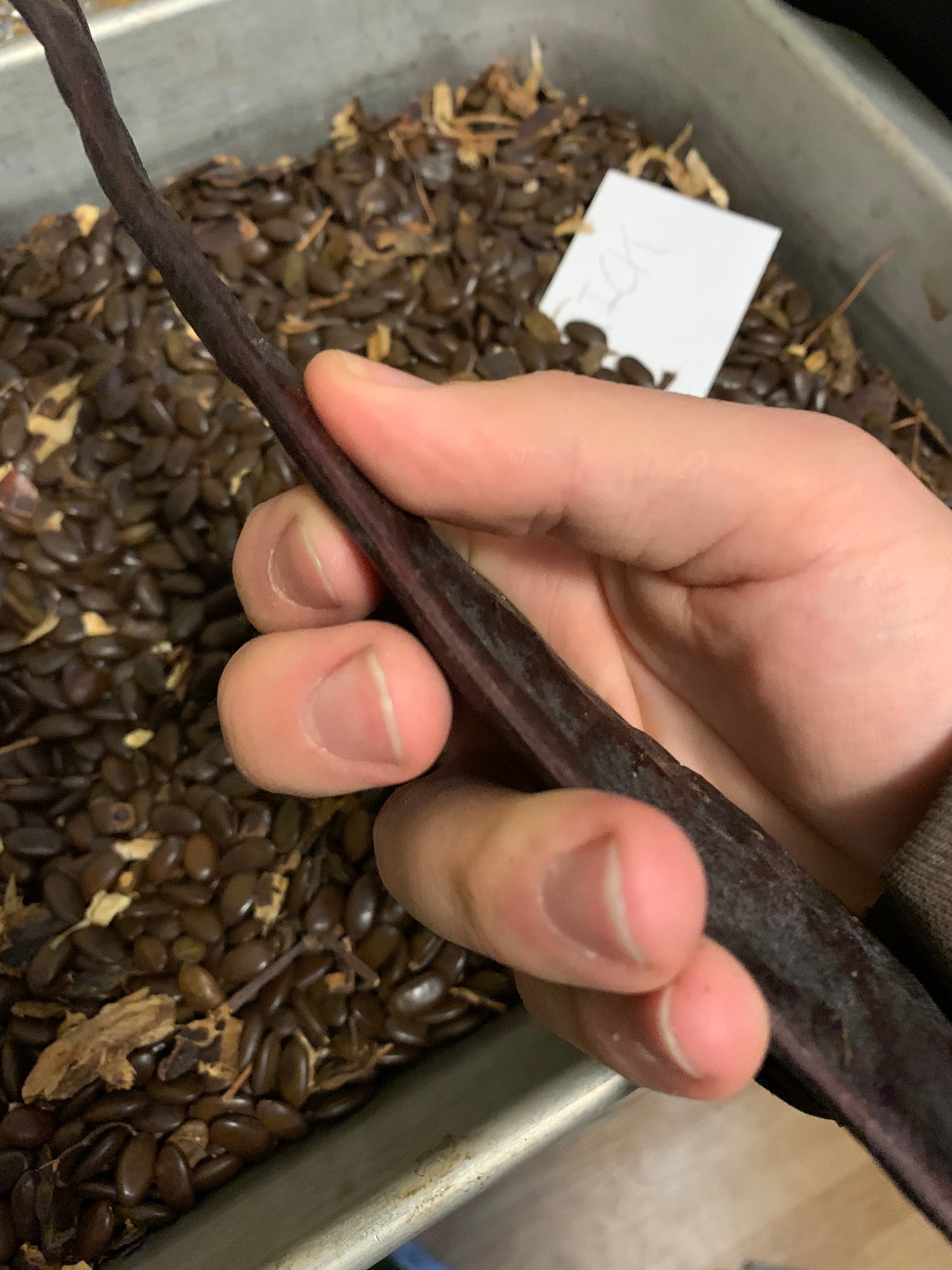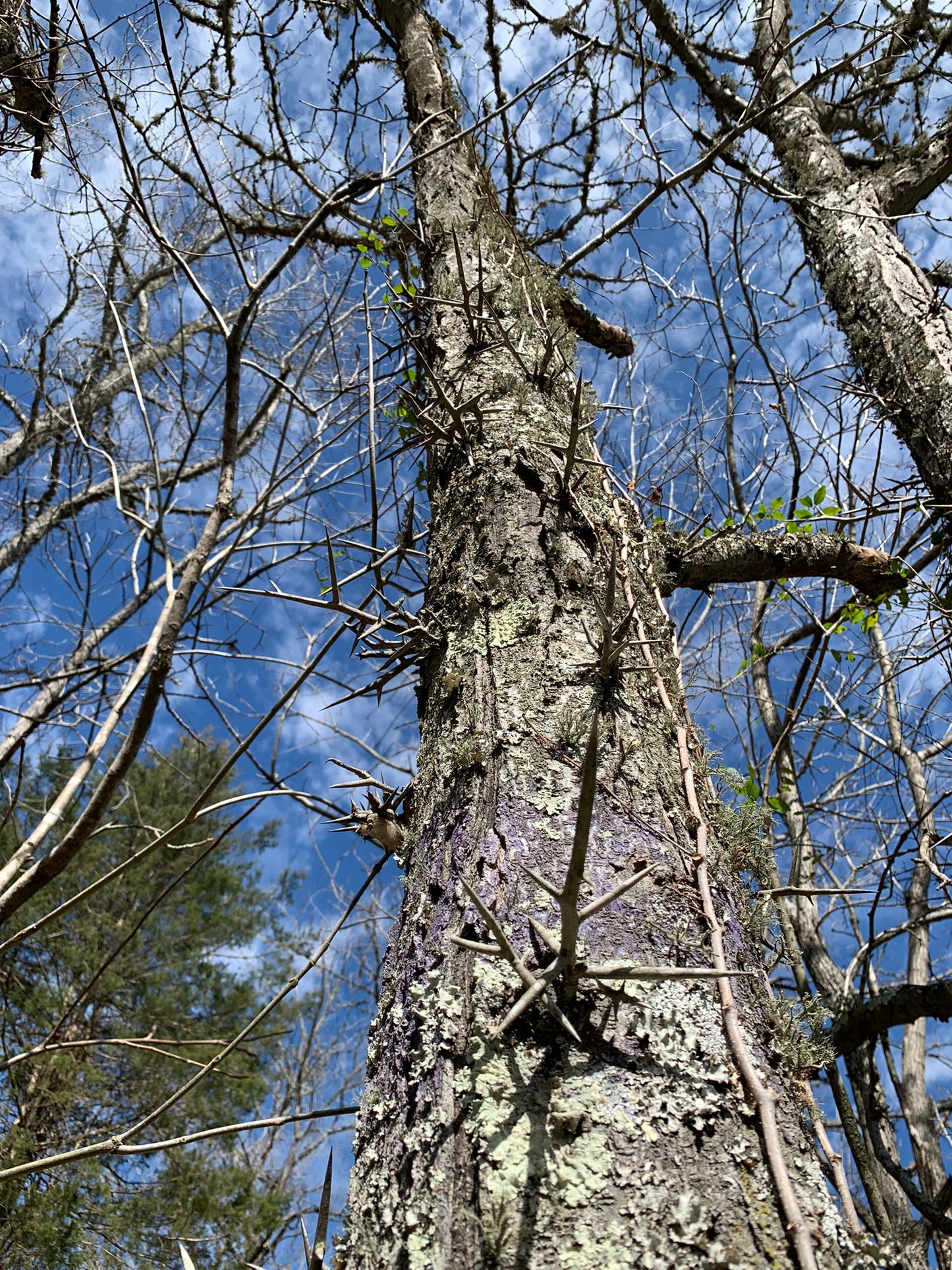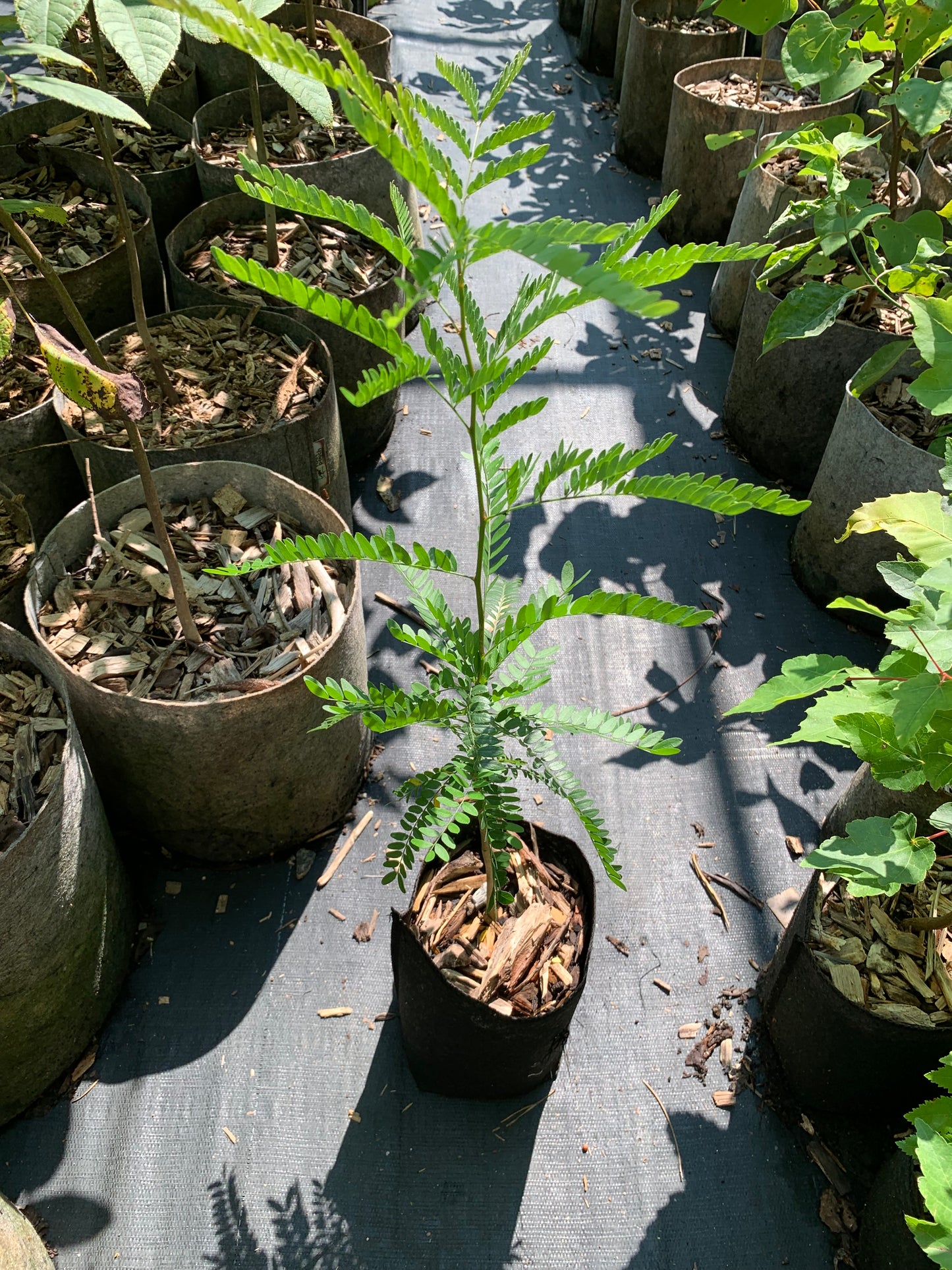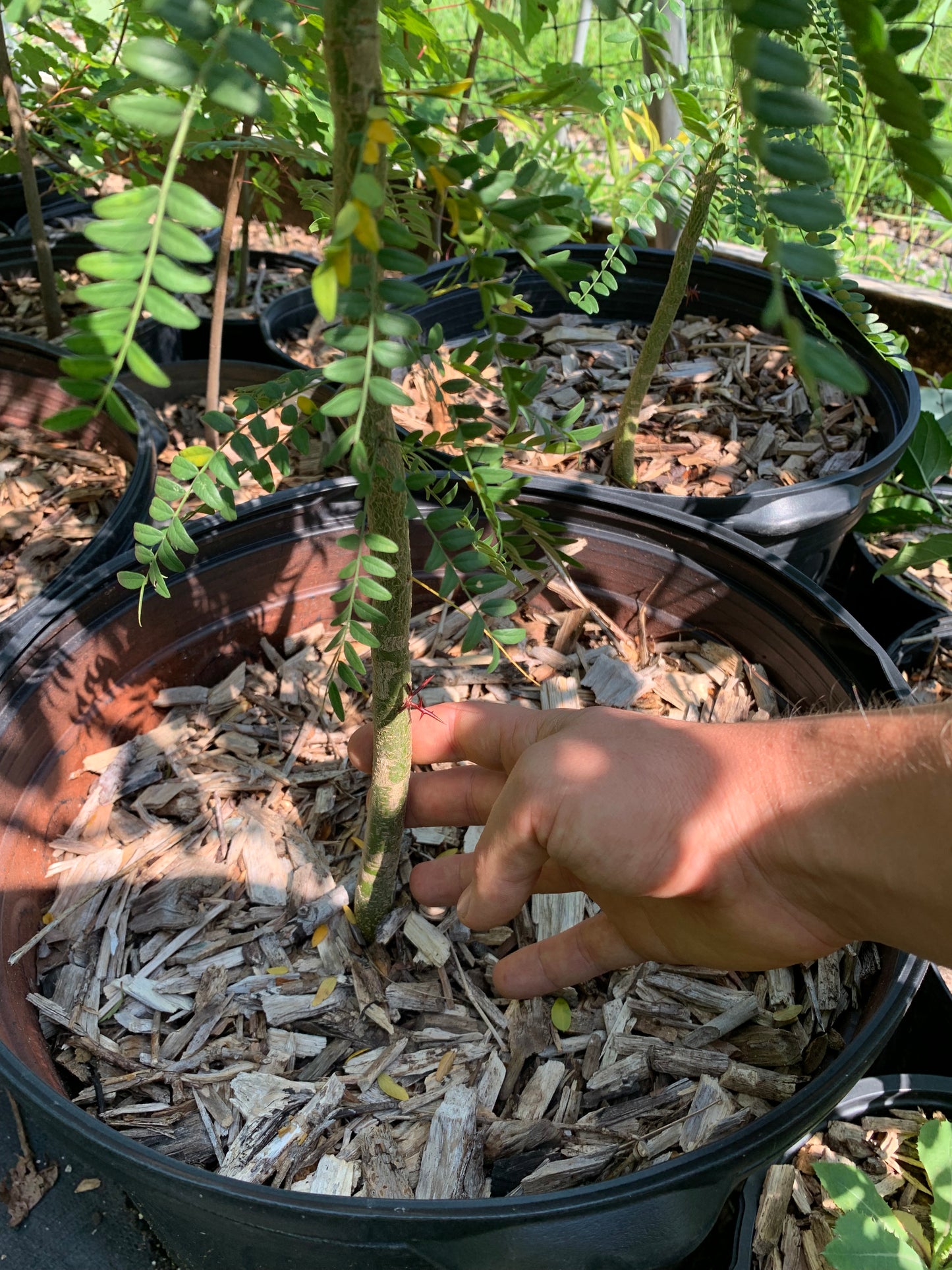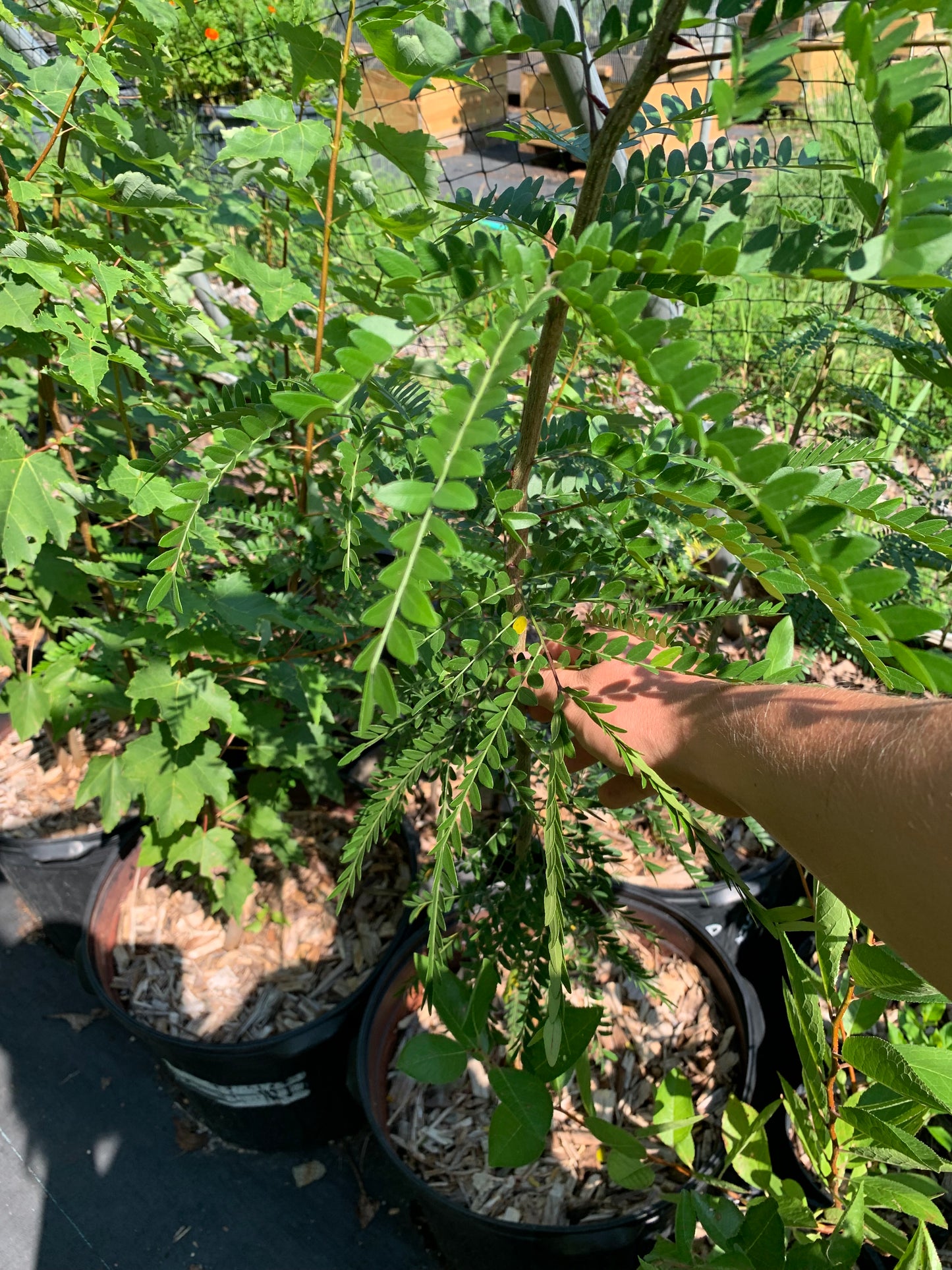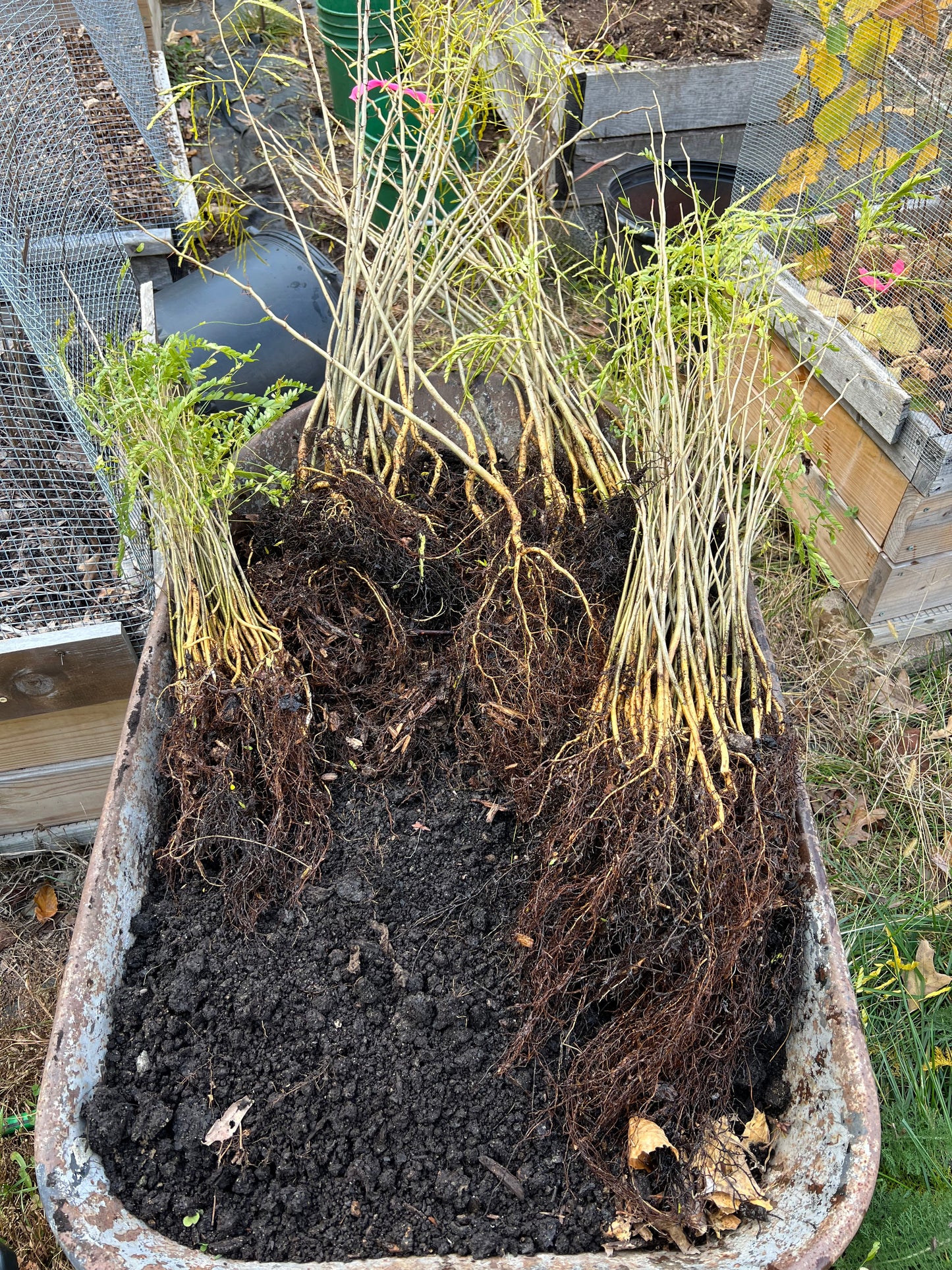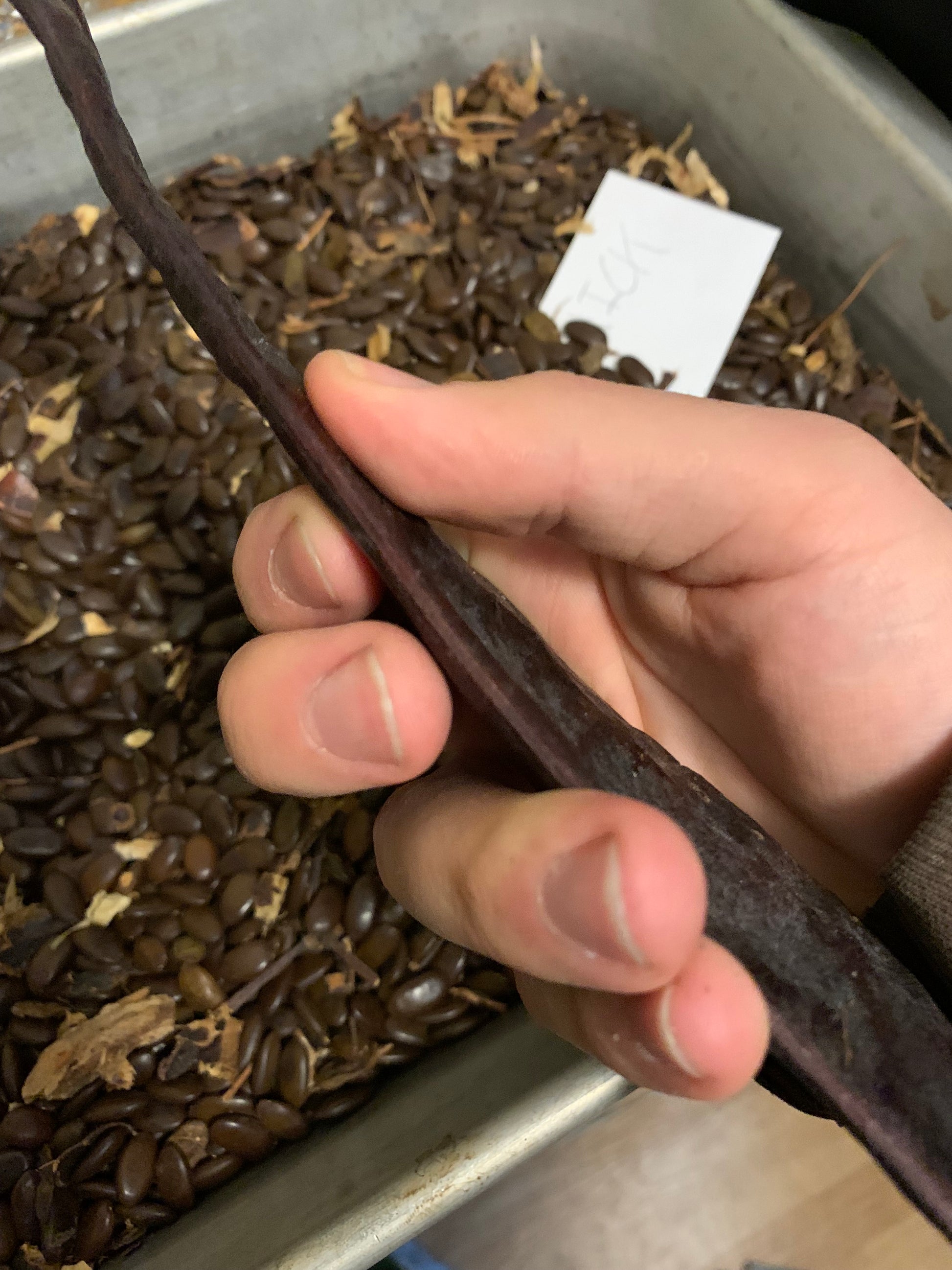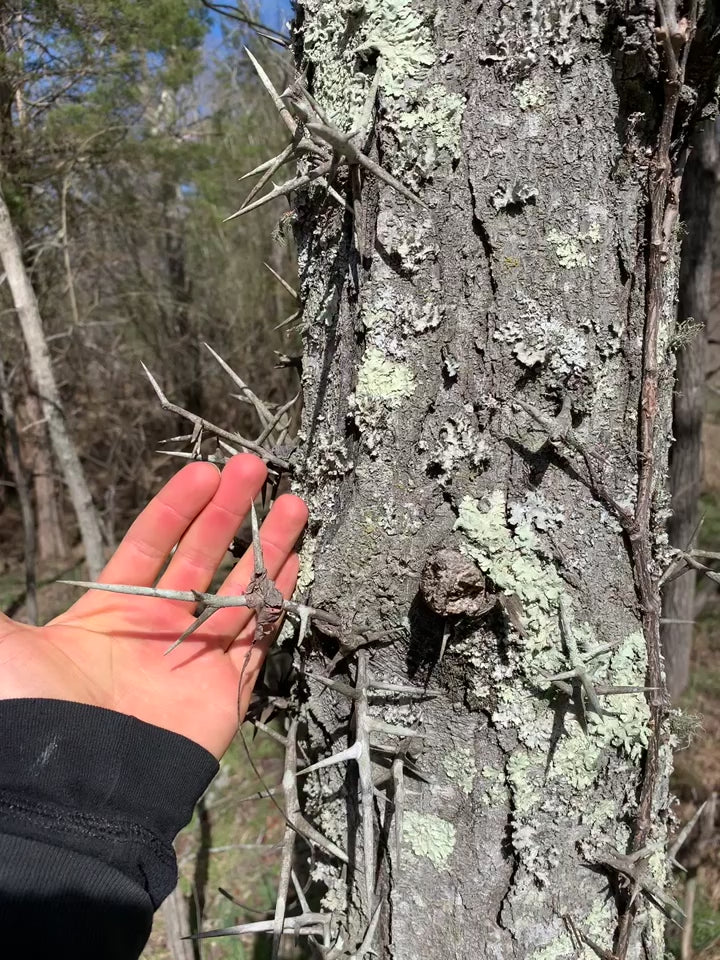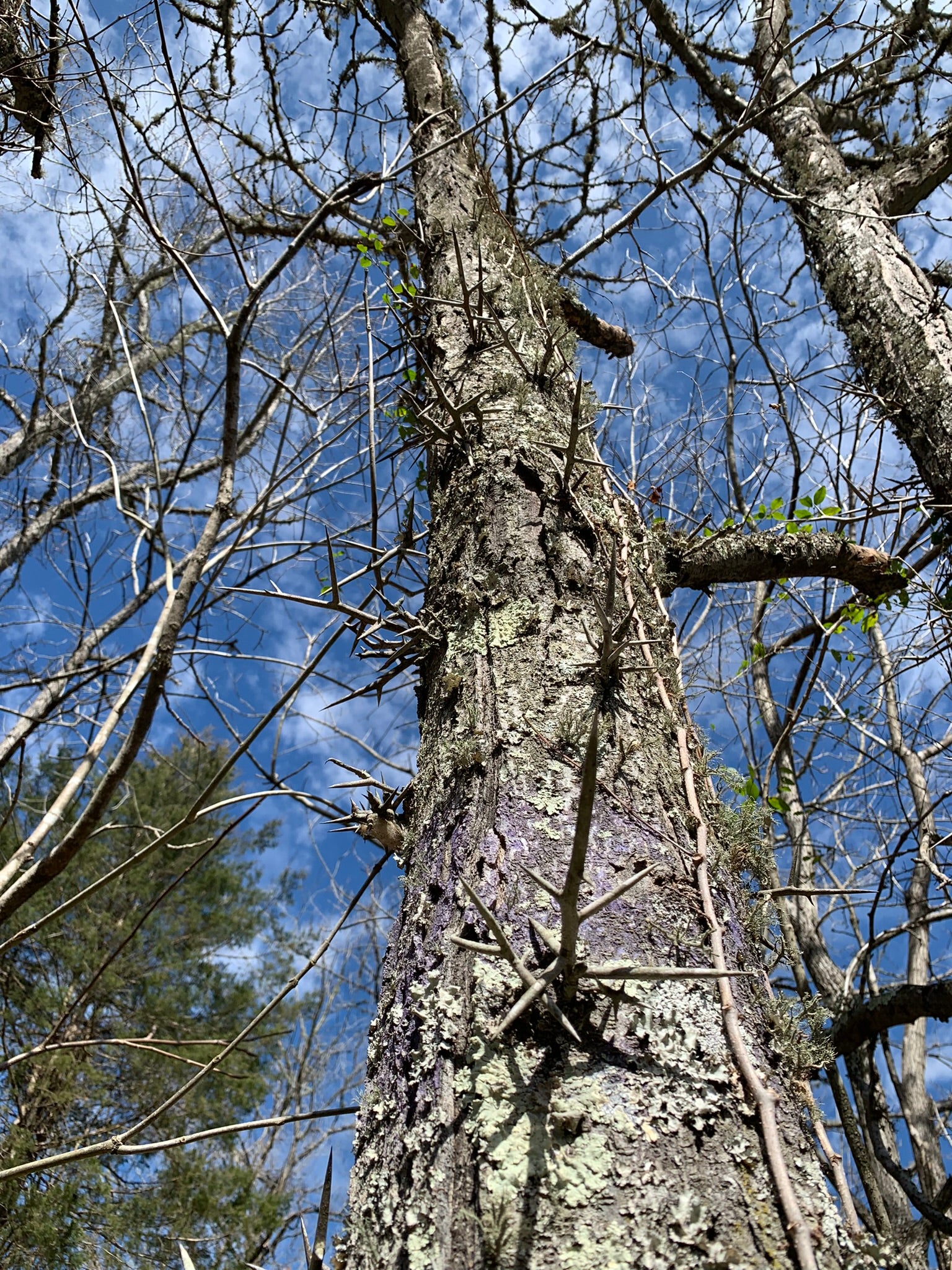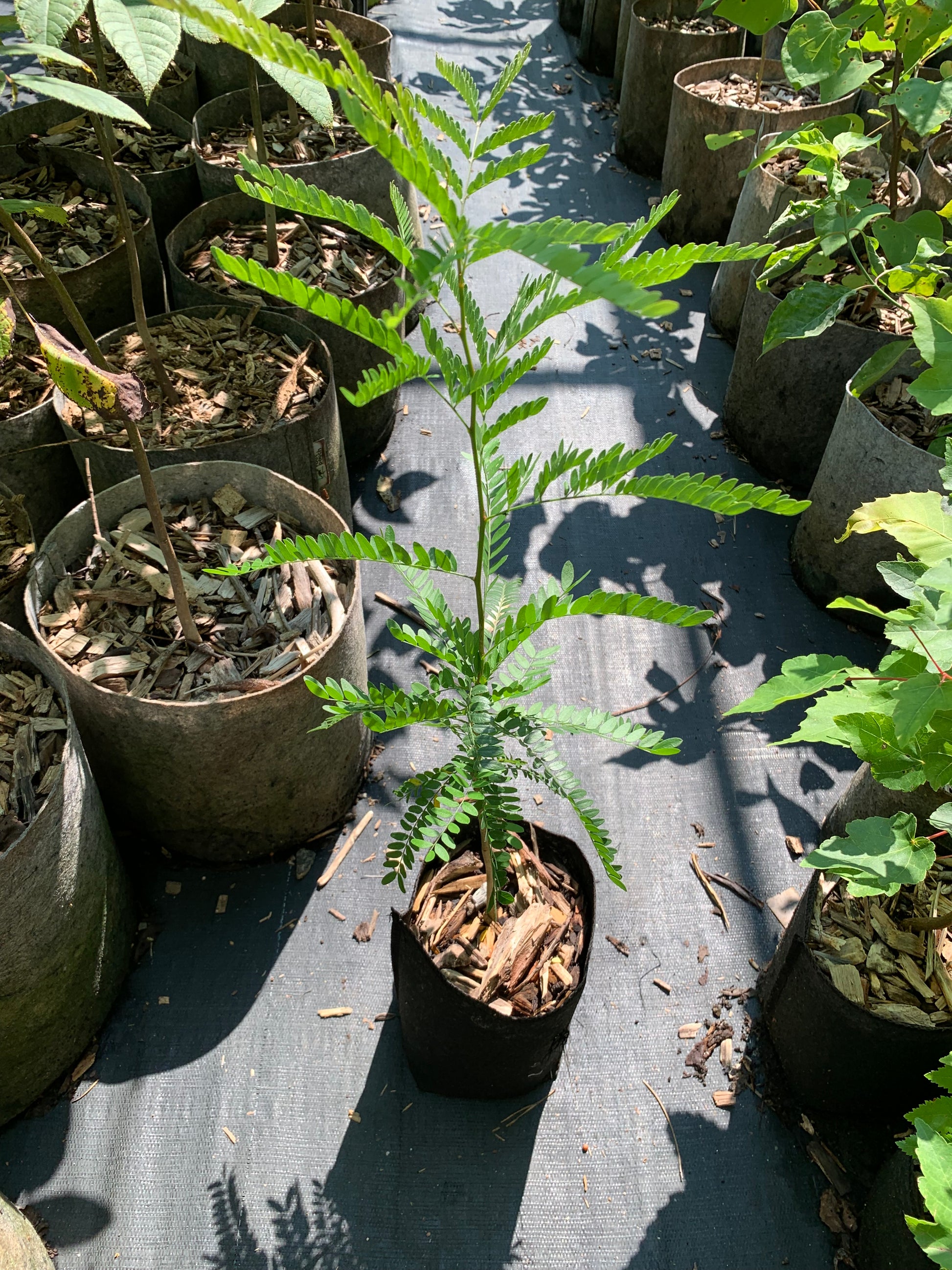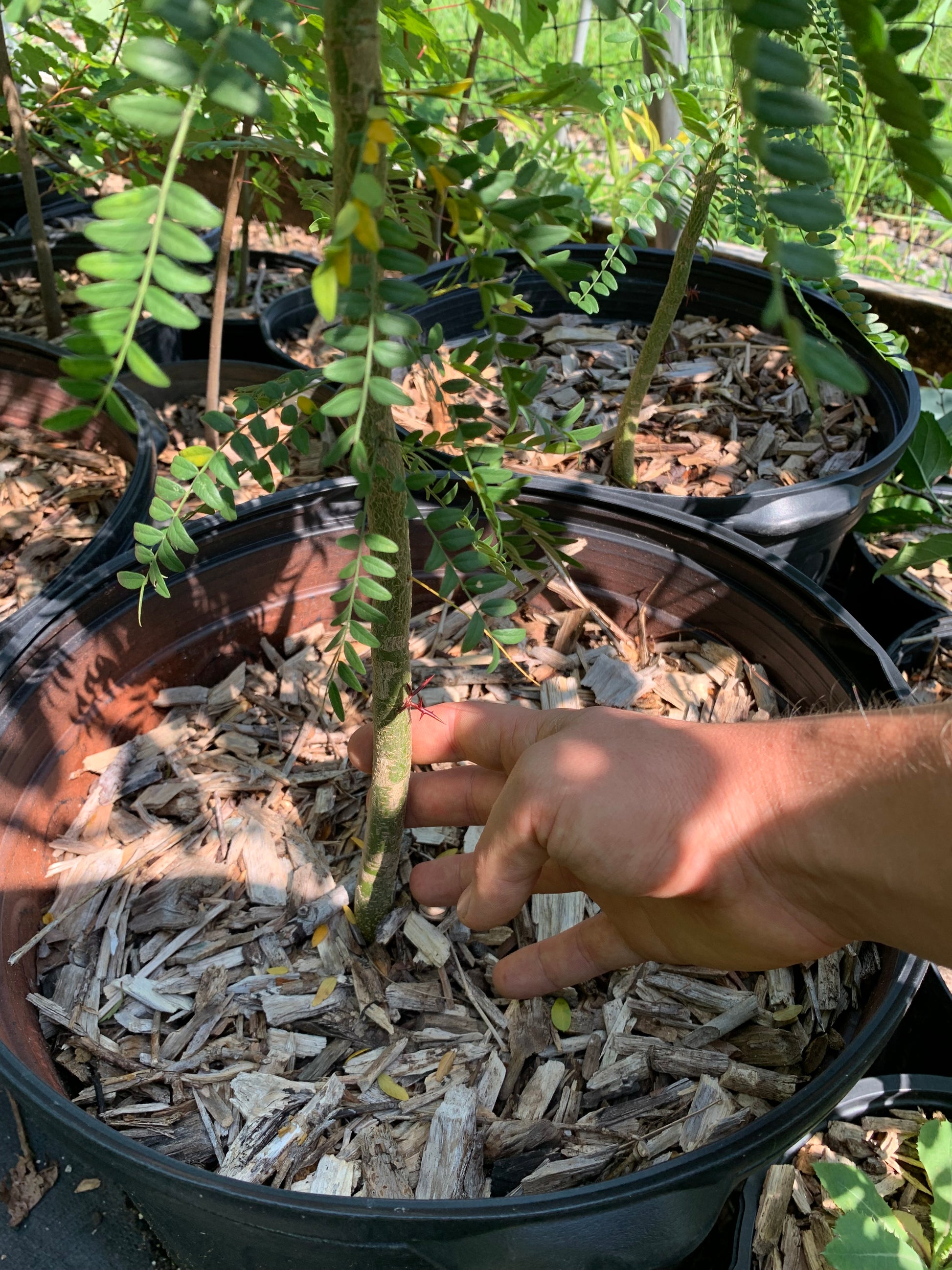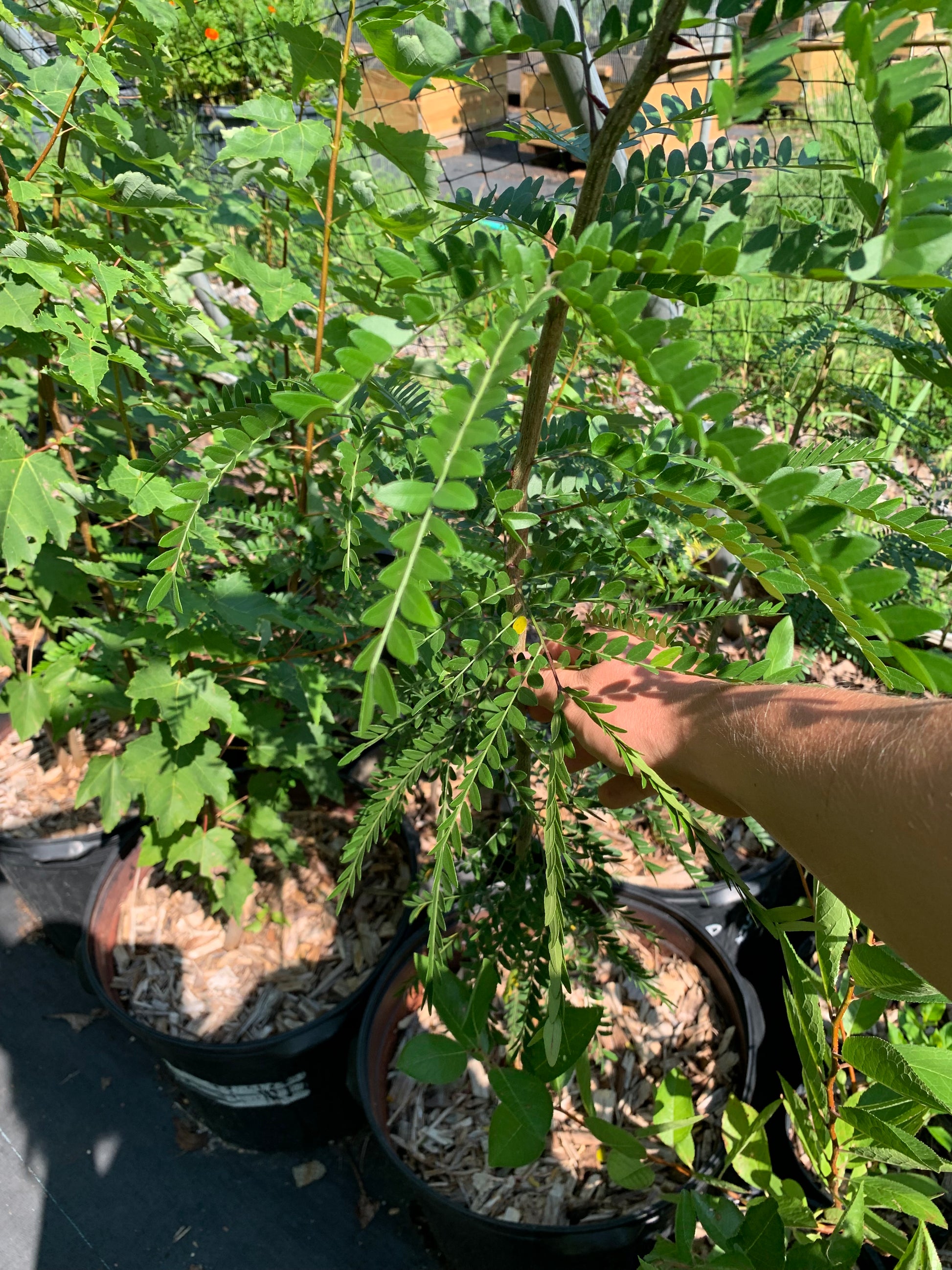Living Soil Tree Farm
Honey Locust
Honey Locust
Couldn't load pickup availability
Honey Locust (Gleditsia triacanthos)
Honey locust is a highly adaptable and vigorous tree native to the east coast of the US. Livestock enjoy grazing the leaves and pods if they can access them. These trees respond well to coppicing. The pulp of the pod is also edible to humans. Many honey locust seedlings will develop massive thorns (see pictures). These thorns are no joke, and could easily pop a tire. If you intend to build a living fence this may be a positive attribute. Mature thorns deter livestock and deer. Not all trees develop thorns. It is thought that these thorns evolved as a deterrent to large now extinct megafauna. Honey locust have an amazing yellow fall color.
Once established honey locust are drought tolerant. They thrive in urban environments. The pods contain a sticky sugary paste that tastes amazing. The pods can be dried and ground into a powder that is similar to carob. Although live stock love the pods they make a great human food too. We hope to explore ways to bring honey locust into our baking recipes soon! Not all trees will produce pods & of pod producing trees some make much better pods than others. Honey locust usually produce male and female flowers on separate tress, males will not make pods. Usually females will make pods without male pollen but the pods will be seedless unless pollenated. The amount of sugary goodness in a trees pods, as well as overall productivity ranges widely in the wild population. Seedlings from trees with outstanding pods are likely to also produce high quality pods.
Their wood is dense and very rot resistant making it great for fence posts but it is not as rot resistant as black locust. Honey locust makes excellent firewood. There is some debate as to whether honey locust can fix nitrogen in the soil. Many scientific sources state that honey locust does not develop root nodules that are present in other species that fix nitrogen via a relationship to rhizobium bacteria. There are however other ways that plants can fix nitrogen, rhizobium is not the only bacteria capable of this feat. If you would like to learn more about other ways that plants can fix nitrogen we recommend looking at the research being done by Dr. James White at Rutgers University.
We feel that one of the most valuable uses for honey locust are for silvopasture uses. The leaves are highly desirable browse but more important are the pods. On mature trees pods ripen and fall to the ground in truly massive quantities, typically starting in late fall/early winter. At this time of year there are few other forages around for grazing animals. The pods can be (depending on the trees genetics) loaded with sugar. Livestock go crazy for these pods. The pods can be gathered and stored for several months in a barn without spoiling. Since the trees provide only dappled shade they do not inhibit the growth of pasture grasses under their canopy!
Selections:
Hershey
Our trees for 2024 & 2025 came from seed gathered at the remains of John Hershey's nursery in Downingtown PA. John was a well known nurseryman in the early 1900s who gathered superior cultivars of countless species and planted them at his farm in PA. Much of his farm has been cut down to make room for suburban sprawl but some of the trees still remain. One species John was fascinated with is honey locust. The trees he selected are mostly thornless and produce pods with a much higher sugar content compared to the average wild honey locust. Specifically our seed this season came from honey locust trees across from the Quaker Meeting house in Downingtown.
Wild
In 2025 we have a small number of honey locust trees grown from several seed sources. These sources include a handful of wild honey locust trees in PA, VA, and NC as well as several healthy urban trees.
Materials
Materials
Shipping & Returns
Shipping & Returns
Dimensions
Dimensions
Care Instructions
Care Instructions
